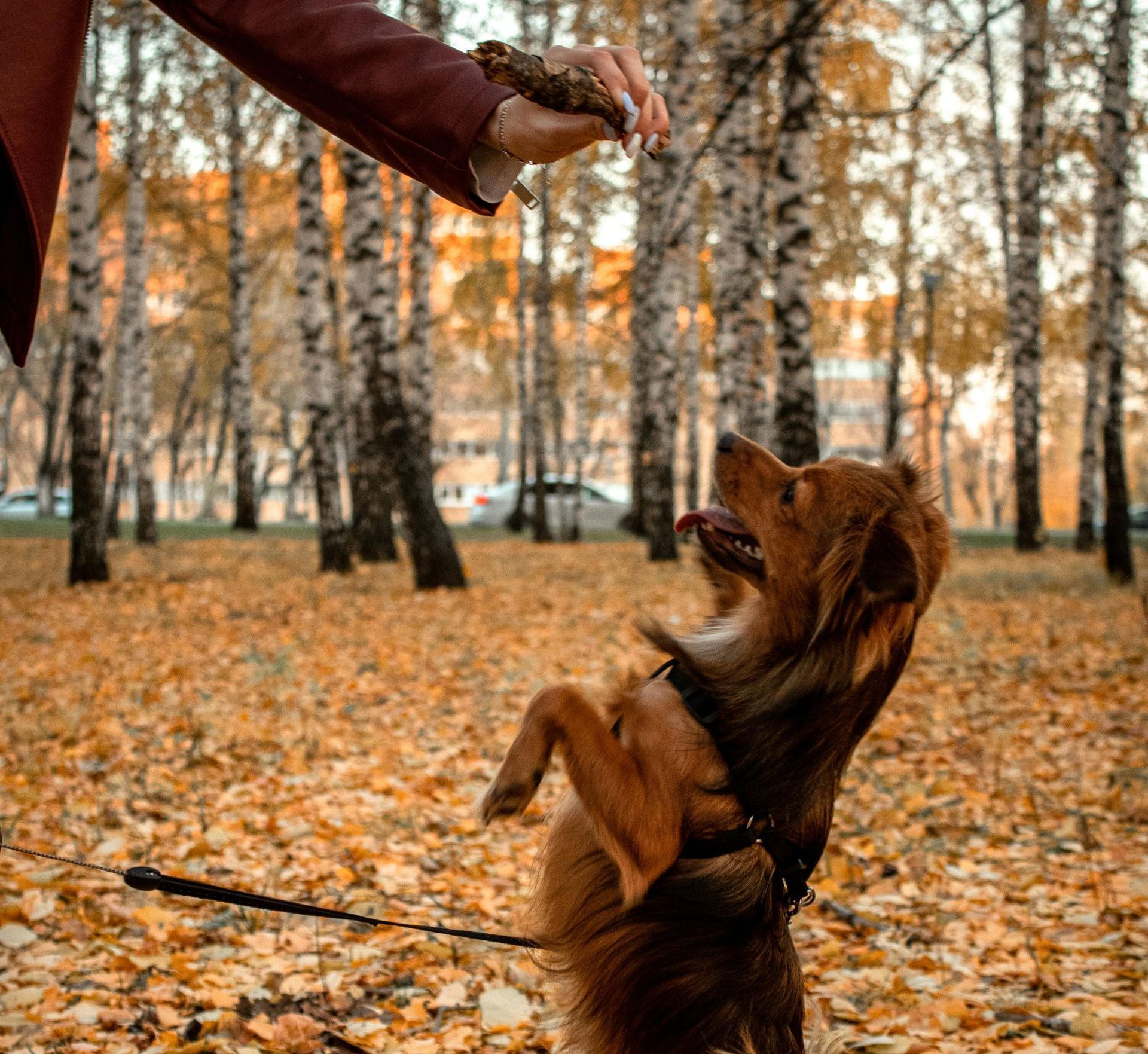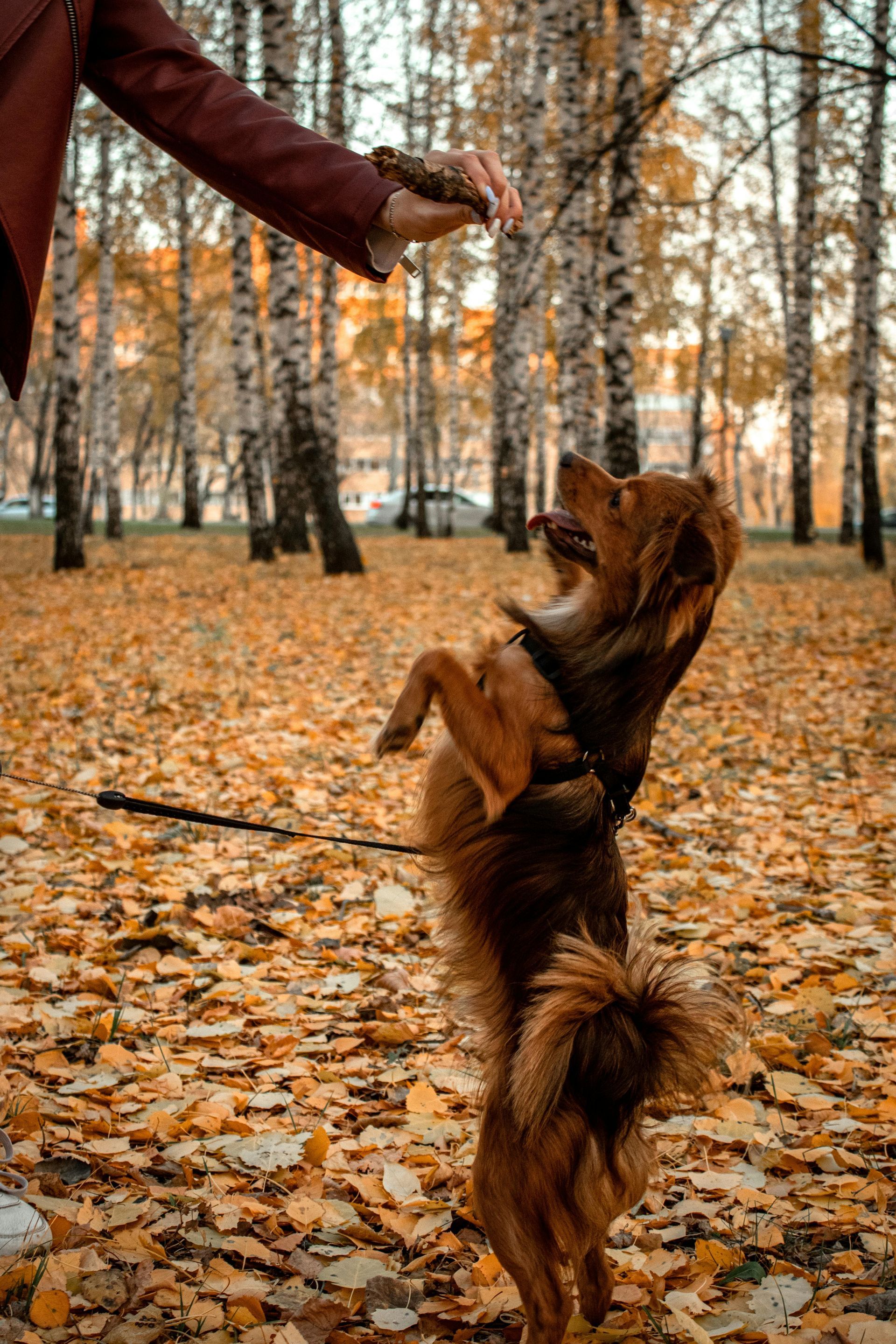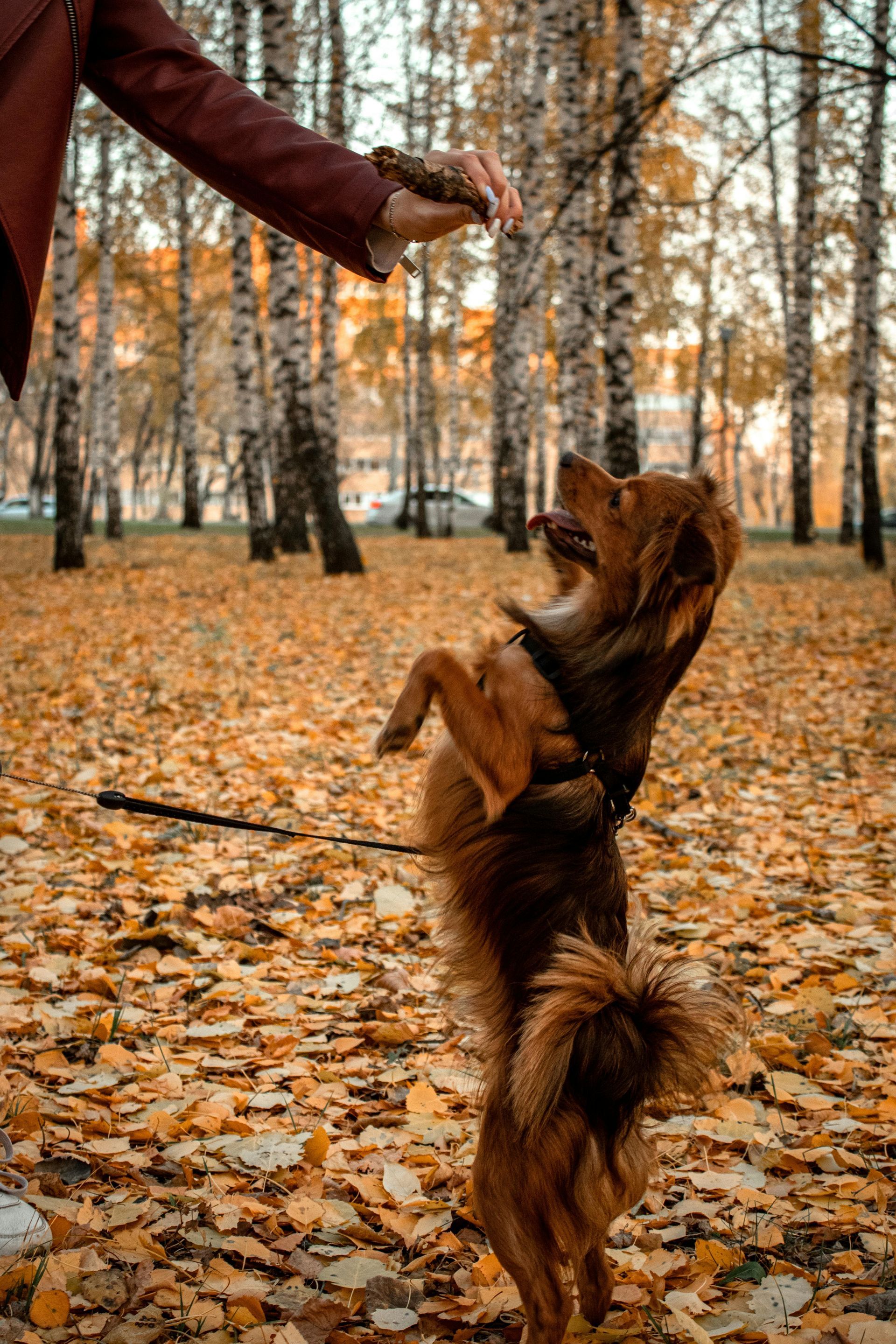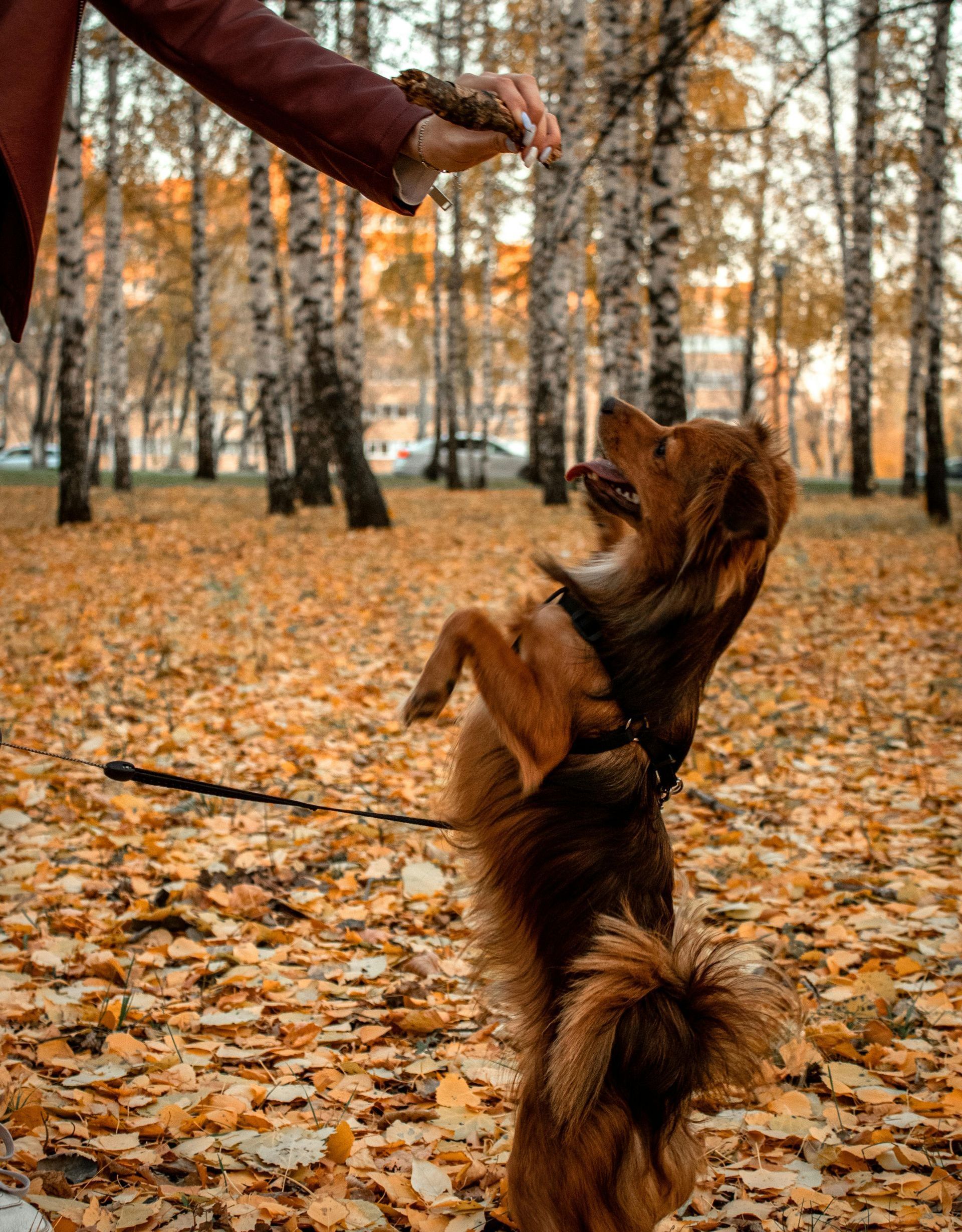Thanksgiving Pet Safety
Halloween is a fun and festive time for the whole family, filled with tempting treats and spooky decorations—a holiday we all look forward to! However, the excitement can quickly turn into scary situations for our pets. and it's important to consider things from your pet's perspective: dogs have a natural instinct to protect their home by alerting you to strangers, while cats generally prefer a calm, quiet environment with their family. The constant ringing of doorbells and knocking from trick-or-treaters can be stressful for both. So whether you're hosting a costume party or simply handing out candy to trick or treaters, follow these tips to ensure your pets have a fright-free holiday.
Paws Off the Plate: Foods Pets Should Avoid This Thanksgiving
Thanksgiving is all about indulging in delicious meals surrounded by loved ones—including our pets! While it's tempting to share a little holiday joy with your furry family members, many of the foods we enjoy can be harmful to them. From hidden ingredients to unsafe leftovers, it's important to know which dishes to keep away from curious noses and what pet-friendly options you can safely offer.
- Turkey Bones & Skin: While turkey itself is often a centerpiece of Thanksgiving, the bones can be particularly dangerous. Cooked turkey bones can splinter easily, causing choking or injury in the mouth, throat, or digestive tract. Turkey skin is high in fat, which can lead to pancreatitis, a painful condition caused by inflammation of the pancreas.
- Gravy And Fatty Foods: Gravy is often rich in fats and sodium, which can upset your pet's stomach and lead to pancreatitis. High sodium levels can also harm pets especially those with existing health issues.
- Stuffing & Seasonings: Stuffing often contains onions, garlic, sage, and spices—ingredients that can be toxic to pets, especially dogs and cats. Onions and garlic, in particular, can cause gastrointestinal irritation and even lead to red blood cell damage.
- Mashed Potatoes: While plain mashed potatoes without any additives might not be harmful, many recipes include butter, cream, and seasoning, which can be too rich in fats and may lead to digestive problems.
- Dairy products: Many pets, particularly dogs and cats, are lactose intolerant. This means they lack the enzyme necessary to properly digest lactose, the sugar found in milk and dairy products. Feeding your pet cheese, cream, or whipped toppings can lead to stomach cramps, gas, vomiting, and diarrhea.
- Bread Dough & Yeast: Raw dough when ingested can expand in your pets stomach, leading to painful bloating, which can have potential life-threatening complications. Yeast produces alcohol during the fermentation process, which can also lead to alcohol poisoning in pets causing symptoms such as vomiting, disorientation, and respiratory failure.
- Pies and Desserts: Many Thanksgiving pies contain ingredients that are dangerous for pets. For example, chocolate pie contains chocolate, which is toxic to dogs and can cause vomiting, diarrhea, seizures, or even death. Fruit pies might contain raisins, which are also toxic to dogs, leading to kidney failure. Even sweeteners and excessive sugar can upset your pet's stomach.
- Alcohol & Caffeinated Drinks: Both alcohol and caffeine are toxic to pets. Even small amounts of alcohol can lead to alcohol poisoning and can impair coordination, induce vomiting, and lead to respiratory failure or coma. Similarly, caffeine can cause restlessness, rapid breathing, heart palpitations, and muscle tremors in pets. It’s essential to keep all alcoholic beverages and caffeinated drinks out of reach of your pets during the festivities.
- Watch Out for the Trash: Leftover bones, packaging, and food scraps can be extremely tempting for pets but pose major risks if ingested. This may be the last thing on your mind while trying to keep up in the kitchen, but your garbage can fill up with bones, chocolate, onions and plenty of other holiday hazards mentioned above. Try to remember to empty your trash throughout the day so that curious pets don’t get into trouble. Or, do your best to keep your pet out of the area where the trash is.
Keep the ASPCA Animal Poison Control Center hotline handy: 888-426-4435. If your pet eats something dangerous or gets into something they shouldn’t, call your vet or the Poison Control Center immediately.
What to Feed Them Instead
If you want to share the holiday spirit with your pets, here are some safe alternatives to give them instead without risking an emergency vet visit!
- Plain, Cooked Turkey Meat (No Skin or Bones): A small amount of plain, cooked turkey is fine for pets. Make sure it’s unseasoned and free of skin, fat, or bones to avoid digestive issues or choking hazards.
- Vegetables: Vegetables like carrots, green beans, and sweet potatoes (without added butter, spices, or marshmallows) are great healthy treats for pets. They're rich in fiber and essential nutrients.
- Pumpkin (Plain, Not Pie): Canned or cooked plain pumpkin is excellent for digestion and can be served in moderation. Just make sure it’s not part of a pie or mixed with sugars and spices.
- Apple Slices (No Seeds): Fresh apple slices make a crunchy, fiber-filled treat. Be sure to remove the seeds, as they contain cyanide and can be harmful in large amounts.
- Rice or Plain Mashed Potatoes: Small portions of plain, cooked rice or mashed potatoes (without butter, cream, or seasoning) can be safe for your pets and a nice little side dish.
- Pet-Safe Treats: Consider making or buying pet-specific holiday treats. These are designed to be nutritious and enjoyable without the risks that come with human food.
Travel Ready: Pet Travel and Boarding Tips
Traveling during the holidays requires extra planning when it comes to your pets. Whether they’re joining you on the trip or staying behind in a boarding facility, their safety and comfort should be a priority as many pets experience stress or anxiety when faced with travel or changes to their routine. Here are a few things to remember:
- If you’re traveling across state lines or internationally with your pet, a health certificate from your veterinarian may be required. Research the regulations for each destination and ensure you schedule a vet appointment within the required time frame to obtain the necessary documentation.
- Regardless of weather conditions, pets should never be left unattended in cars. Even a short time alone can expose them to risks, including extreme temperatures and theft.
- Always secure pets with a harness or carrier in a location away from airbags. This keeps your pet safe in case of sudden stops or accidents, prevents access to hazardous items, and eliminates distractions for the driver. Small pets can also avoid getting trapped in tight spaces by being properly secured.
- If you’re thinking of flying with your pet, consult with your veterinarian, especially if you have a short-nosed breed like a pug or Persian cat, as they may have difficulty with air travel. Your veterinarian is the best person to advise you regarding your own pet’s ability to travel.
- If you’re traveling with your pet, pack not just their food and medication but also their medical records, identification information, and first aid supplies. Being prepared can help you address any unexpected situations during your trip.
- If you plan to board your pet while you travel, be sure to discuss vaccinations and preventive measures with your veterinarian. Boarding facilities typically have vaccine requirements to protect against contagious diseases like canine flu, kennel cough, and more. Make sure your pet is fully up to date on their vaccinations to meet the facility's requirements and minimize health risks during their stay.



